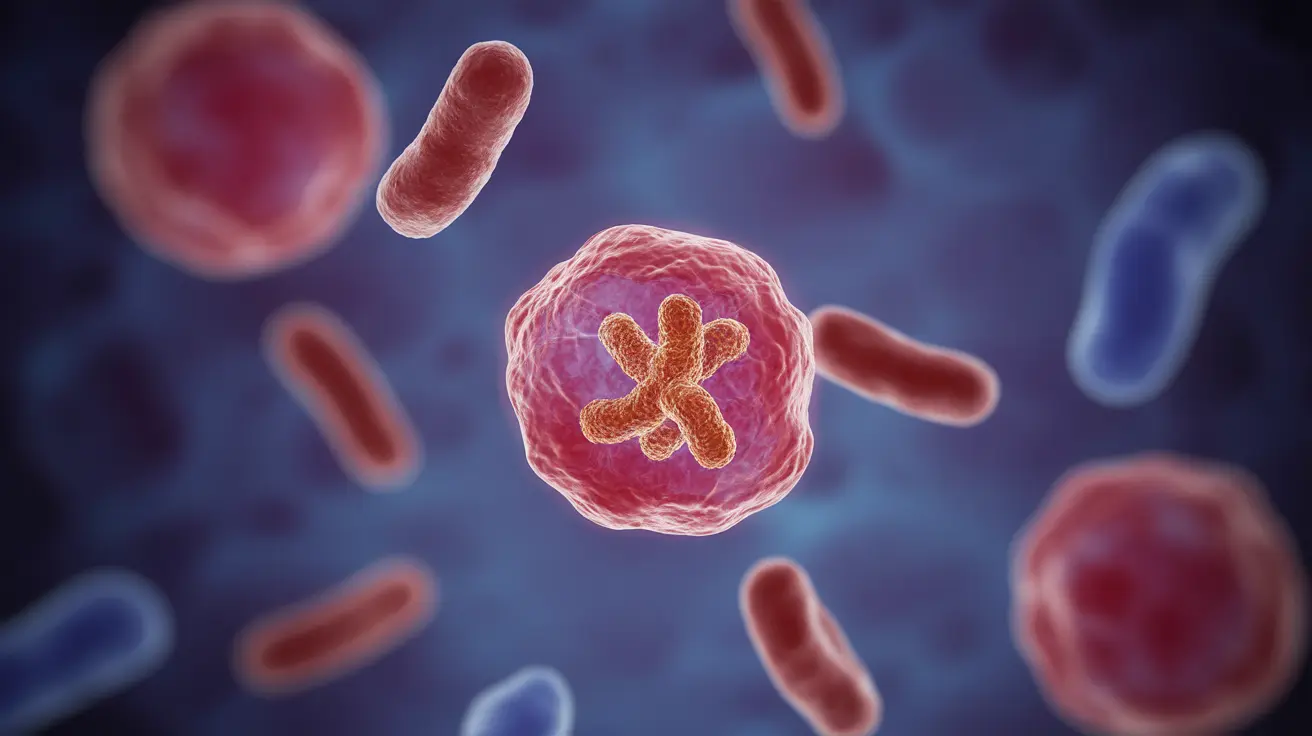The immune system is one of the most remarkable and complex networks in the human body, working tirelessly to protect us from harmful invaders. This intricate defense system is filled with fascinating mechanisms and surprising capabilities that help maintain our health every day.
Let's explore some incredible aspects of the immune system, from its specialized cells to its remarkable memory, and discover how this biological security force keeps us healthy.
The Army Within: Understanding Immune System Cells
Your immune system maintains a diverse arsenal of specialized cells, each with unique roles in protecting your body. White blood cells, or leukocytes, serve as the primary defenders, with several distinct types:
- Neutrophils: First responders to infection
- Lymphocytes (B-cells and T-cells): Targeted defense specialists
- Macrophages: Cellular cleanup crew
- Natural killer cells: Security forces against cancer and viral infections
These cellular warriors work together in harmony, patrolling your bloodstream and tissues to identify and eliminate potential threats.
The Remarkable Memory of Your Immune System
One of the most impressive features of the immune system is its ability to remember previous encounters with pathogens. This immunological memory is why vaccines are so effective and why you typically don't get the same illness twice.
When your immune system encounters a pathogen for the first time, it creates memory cells specifically designed to recognize that particular threat. These cells remain in your body for years, sometimes decades, ready to mount a rapid response if the same pathogen returns.
The Heat of Battle: Understanding Fever
Fever is actually a sophisticated immune response, not just an uncomfortable symptom. When your body raises its temperature, it creates an environment that's less hospitable to harmful microorganisms while speeding up immune cell activity.
This natural defense mechanism helps your body fight infections more effectively, although extremely high fevers can be dangerous and should be monitored carefully.
Two Systems Working as One: Innate and Adaptive Immunity
Your immune system operates through two main branches:
The Innate Immune System
This is your body's first line of defense, featuring physical barriers like skin and mucus membranes, along with general response cells that attack any foreign invader they encounter.
The Adaptive Immune System
This sophisticated secondary defense learns to recognize specific threats and creates targeted responses, becoming more effective with each exposure to particular pathogens.
Strengthening Your Immune System Naturally
Several lifestyle factors can help maintain and boost your immune system's effectiveness:
- Regular exercise
- Adequate sleep (7-9 hours per night)
- Balanced, nutrient-rich diet
- Stress management
- Regular handwashing
- Maintaining healthy vitamin D levels
Frequently Asked Questions
What are the main types of cells involved in the immune system and how do they protect the body?
The main immune cells include white blood cells like neutrophils, lymphocytes (B-cells and T-cells), macrophages, and natural killer cells. Each type has specific roles: neutrophils quickly attack invaders, lymphocytes create antibodies and destroy infected cells, macrophages engulf harmful substances, and natural killer cells target cancer cells and virus-infected cells.
How does the immune system remember past infections to respond faster the next time?
The immune system creates memory B-cells and T-cells after initial exposure to a pathogen. These cells remain in the body and can quickly recognize and mount a stronger, faster response if the same pathogen returns, often preventing illness entirely or reducing its severity.
What role do fever and allergic reactions play in the immune system's defense?
Fever is a protective response that creates an unfavorable environment for pathogens while accelerating immune cell activity. Allergic reactions, while uncomfortable, are actually the immune system responding to perceived threats, though sometimes inappropriately to harmless substances.
How does the innate immune system differ from the adaptive immune system?
The innate immune system provides immediate, general protection through physical barriers and non-specific immune cells. The adaptive immune system develops targeted responses to specific threats over time, creating immunological memory for future encounters.
What lifestyle habits can help strengthen and support a healthy immune system?
Key habits for immune system support include regular exercise, adequate sleep, a balanced diet rich in fruits and vegetables, stress management techniques, good hygiene practices, and maintaining healthy vitamin D levels through safe sun exposure or supplementation when necessary.




